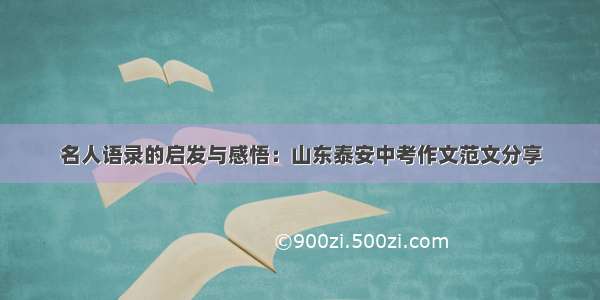【导语】反义疑问句在中考里也是一个常考点,尤其要注意时态和回答,还没有熟练掌握的同学赶紧来补习!整理了相关内容,快来看看吧!希望能帮助到你~更多相关讯息请关注!
一、反义疑问句
反义疑问句是由陈述句和附在其后的附加疑问句组成。其中附加疑问句是对陈述句所说的事实或观点提出疑问,起证实作用,一般用于证实说话者所说的事实或观点。(表示说话者对某事有一定看法,但又不完全确定,需要对方加以证实。)翻译为“是吗”
二、反义疑问句的回答
回答时,事实是肯定的用Yes; 若事实是否定的则用No。
三、反义疑问句的特殊情况
1反义疑问句中问句部分的动词与陈述部分的动词在语气上成相反的对应关系,即:肯定+否定? 否定+肯定?例如:01You can’t do it, can you? 你不能做它,是吗?02They are very late for the meeting, aren’t they? 他们开会迟到了,是吗?
2附加问句的主语应与陈述句的主语保持一致,且只能用人称代词替代。例如:You come from Beijing, don"t you? 你来自北京,是不是?
3当陈述句中含有be动词,助动词,或是情态动词时,反问句部分由这些词加上主语人称代词构成。Be动词包括:am, is, are, was, were助动词有:do, does, did, have(用在完成时), has(用在完成时)等情态动词有:can, could, may, might, must, will, would, shall, should例如:01He will go home, won’t he? 他要回家了,是吗?02She doesn’t like to eat popcorn, does she? 她不喜欢吃爆米花,是吗?
4have的不同用法,反义疑问句用不同的动词。(1)have表“有”时,反义疑问句谓语动词用have/do都行。例如:He has a new car, doesn’t/hasn’t he?
(2)have表“吃,喝,玩,度过,举办”等时,反义疑问句谓语动词用do。例如:01He has supper at home every day, doesn’t he?02They had a good time in Beijing, didn’t they?
(3)have to表“不得不,必须”时,反义疑问句谓语动词用do。例如:Kite has to help her mother, doesn’t she?
(4)had better表“”时,反义疑问句谓语动词用had。例如:We had better go to school at once, hadn"t we?
(5)have用在完成时中,反义疑问句谓语动词用have。例如:They have known the matter, haven’t they?
5当反义疑问句带上否定意义时,有不同的回答方式。(1)反义疑问句的陈述部分带有little, few, never, hardly, seldom,nobody, nothing, no one, none, neither等否定意义的词时,问句部分用肯定式。例如:01She never tells a lie, does she? (不用doesn’t she?) 她从不说谎,是吗?02He was seldom late, was he?(不用wasn’t he?) 他几乎不迟到,是吗?03He is hardly able to swim, is he?04There is little milk in your cup, is there?
(2)当陈述部分所含的否定词是通过加前缀或后缀构成的,(也就是有un, dis-前缀、less-后缀等含有词缀而意思否定的词),当做肯定句处理,其后的反义疑问句依然用否定结构。例如:01It is unfair, isn"t it?02He dislikes English, doesn’t he?
6陈述部分为There + be + 主语时,问句部分用动词+there?形式。例如:There are two cakes on the plate, aren’t there? 碟子里有两块蛋糕,是吗?
7反义疑问句的陈述部分为I am……时,问句部分习惯上用aren’t I?例如:I am a very honest man, aren’t I? 我是个很诚实的人,是吗?
8陈述部分的主语为不定代词something, anything, nothing, everything时,问句部分的主语用it。例如:01Something is wrong with the computer, isn’t it? 电脑有问题了,是吗?02Nothing has happened to them, has it? 他们什么事也没发生,是吗?
9陈述部分的主语为不定代词somebody(someone), anybody(anyone), nobody(no one), everybody(everyone), none, neither时,问句部分的主语用he或they,这时问句动词的数应和he或they一致。例如:01Someone has taken the seat, hasn’t he? 有人已经坐了位置,是吗?02Everyone has done their best in the game, haven’t they? . 每个人在比赛中已经尽力了,是吗?
10陈述部分的主语是指示代词this或that时,反义疑问句的主语用it,当陈述部分的主语是指示代词these或those时,其反义疑问句的主语用they。例如:01This is a plane, isn"t it? 这是一架飞机,是吗?02These are grapes,aren"t they? 这些是葡萄,是吗?
11当陈述部分有情态动词must,问句有4种情况。(1)mustn"t表示“禁止,不可,不必”时,附加问句通常要用must。例如:You mustn"t stop your car here, must you? 你不能把车停在这地方,知道吗?
(2)must表示“有必要”时,附加问句通常要用needn"t。例如:They must finish the work today, needn’t they?他们今天要完成这项工作,是吗?
(3)当must用来表示对现在的情况进行推测时,问句通常要根据must后面的动词采用相应的形式。例如:01He must be good at English, isn’t he? 他英语一定学得很好,是吗?02She must be a good English teacher, isn’t she? 她一定是位优秀的英语老师,是吗?
12当陈述部分谓语动词是need,且这些词被用作实义动词时,其反义疑问句需用do的适当形式。若need为情态动词,疑问部分用need构成。例如:01We need to help them, don’t we?02You needn’t go there, need you?
13当陈述部分为祈使句时。(1)若为let’s引导,反问句用shall we?例如:Let’s go home together, shall we? 让我们一起回家,好吗?
(2)若为let us/me引导和否定祈使句,都用will you?例如:01Let us stop to rest, will you? 让我们停下休息,好吗?02Don’t make any noise, will you? 别弄出噪音,好吗?
(3)肯定祈使句则用will you或won’t you都行。例如:01Do sit down, won’t you? / will you? 请坐,好吗?02You feed the bird today, will you? 今天你喂鸟,是吗?03Please open the window, will you? (won’t you?) 打开窗,好吗?
14陈述部分是主从复合句时,反义疑问句主语常与主句主语一致。例如:She said she would come tomorrow, didn’t she?
【注意】但主句主语为第一人称I/We,谓语动词是think, believe, imagine, expect等时,反义疑问句主语常与从句主语一致,并注意否定前移。例如:01I think he is a good student, isn’t he?02We don’t think you are right, are you?















